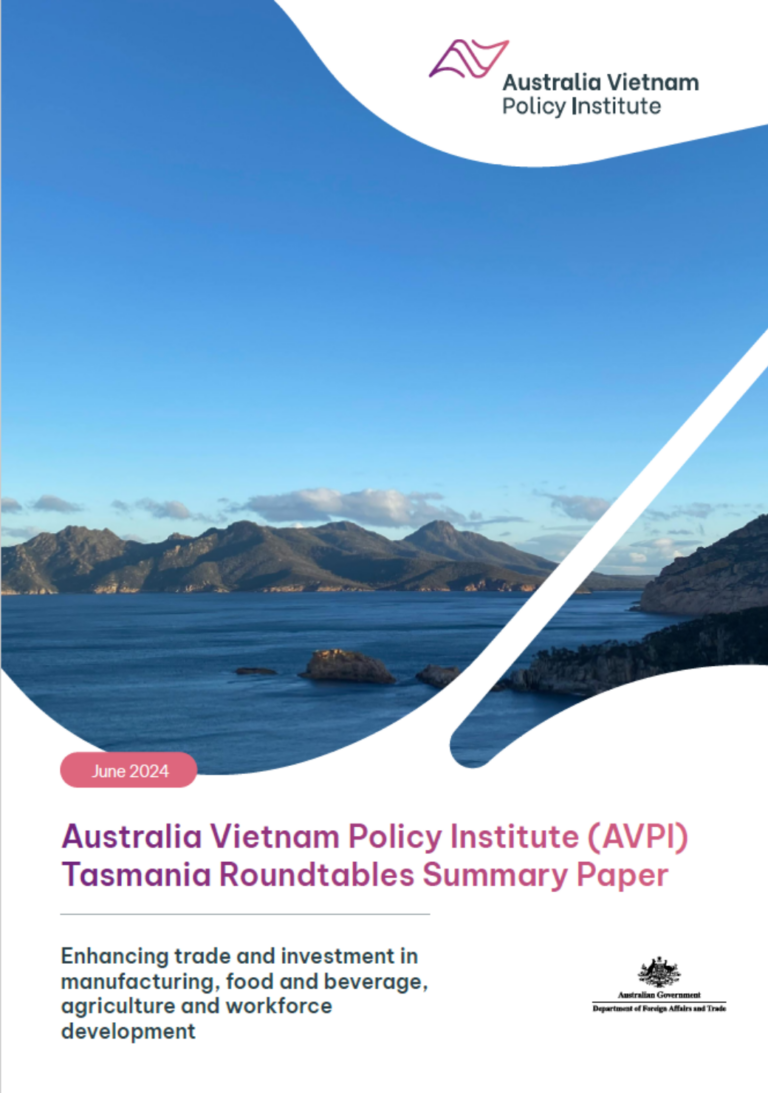The biggest challenge that lies ahead for countries across the globe, including Vietnam, is to build a future that fosters economic growth which is inclusive and sustainable.
Vietnam has become the world’s tenth-largest producer of solar power. Additionally, the country’s share of fossil generation declined to 57% in 2021, from about 65% in the mid-2010s. Vietnam’s transition towards a clean electricity future is very likely to deepen in the coming years, as it endeavours to reduce its dependence on fossil fuels for electricity generation.
This report was launched by the AVPI, in partnership with the Asia Society Policy Institute, at a roundtable discussion in September 2023. The roundtable, hosted by Founding Partner, Asia Society Australia, centred around the key findings of the report and invited key participants to share their knowledge and experience on Vietnam’s clean electricity transition.
The report provides an overview into Vietnam’s current power sector and the issues and challenges that lay ahead in Vietnam’s transition towards a clean electricity future. It also explores how Australia’s extensive experience in renewable energy development can provide vital support in helping Vietnam navigate the complexities involved in its transition towards a clean electricity future.
Key takeaways
- Power grids play a critical role in facilitating the integration of renewable energy while ensuring the security and reliability of electricity supply.
- There is a need for a clearer and streamlined regulatory framework in the governance of renewable energy projects and investments. This is particularly necessary for emerging technologies such as offshore wind, battery storage, and green hydrogen.
- Vietnam requires significant international support to manage the complex financing mechanisms involved in procuring renewable energy projects.
- Enhanced regional crossborder power connectivity could enable more effective sharing of complementary renewable resources (especially, hydro, wind and solar), thereby reducing the need for expensive reserve and backup capacity.
- Facilitating Vietnam’s clean electricity transition requires sufficient investment to support a rapid deployment of renewable energy technologies and systems, as well as ensuring that this investment serves as a catalyst for upgrading local industries, creating job opportunities, and ultimately, fostering more sustainable development.















